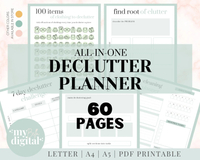Constantly in chaos? 8 reasons you can’t stay organized, according to experts
Can’t stay organized? You’re not alone, experts assure
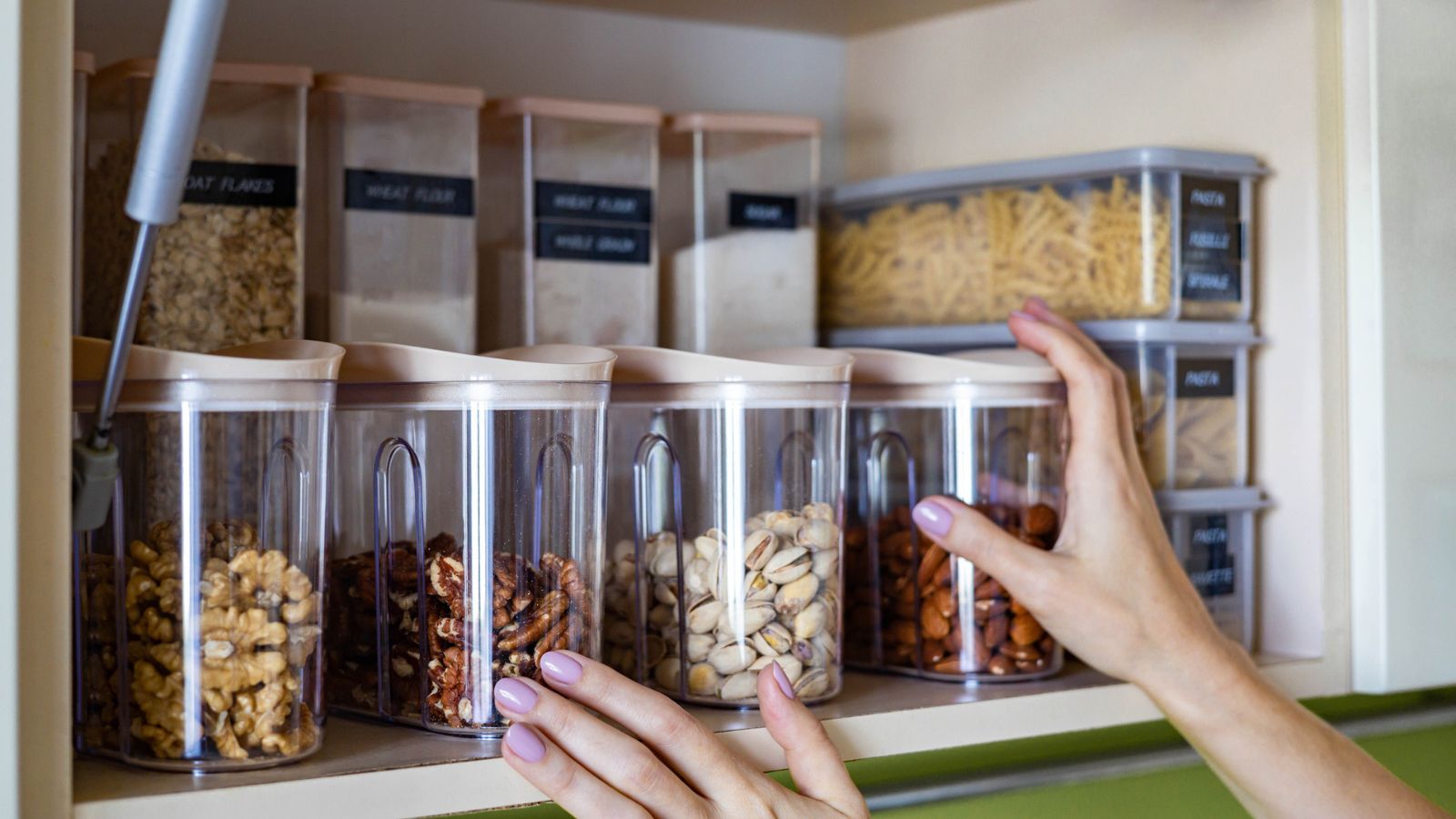

If you have tried every organizing trick and decluttering tip but still find yourself struggling to stay organized, you are not alone – and there could be a simple solution.
Even if you set out with the best intentions, maintaining good home organization is an uphill battle everyone struggles with at some point in their home ownership.
We talked to trusted home organizers to hear their thoughts on the most common reasons you can’t stay organized at home and asked them to share their solutions to common decluttering roadblocks.
8 reasons you can’t stay organized
From organizing mistakes to psychological differences, the experts have the perfect solutions to get you back on track.
1. You over organize
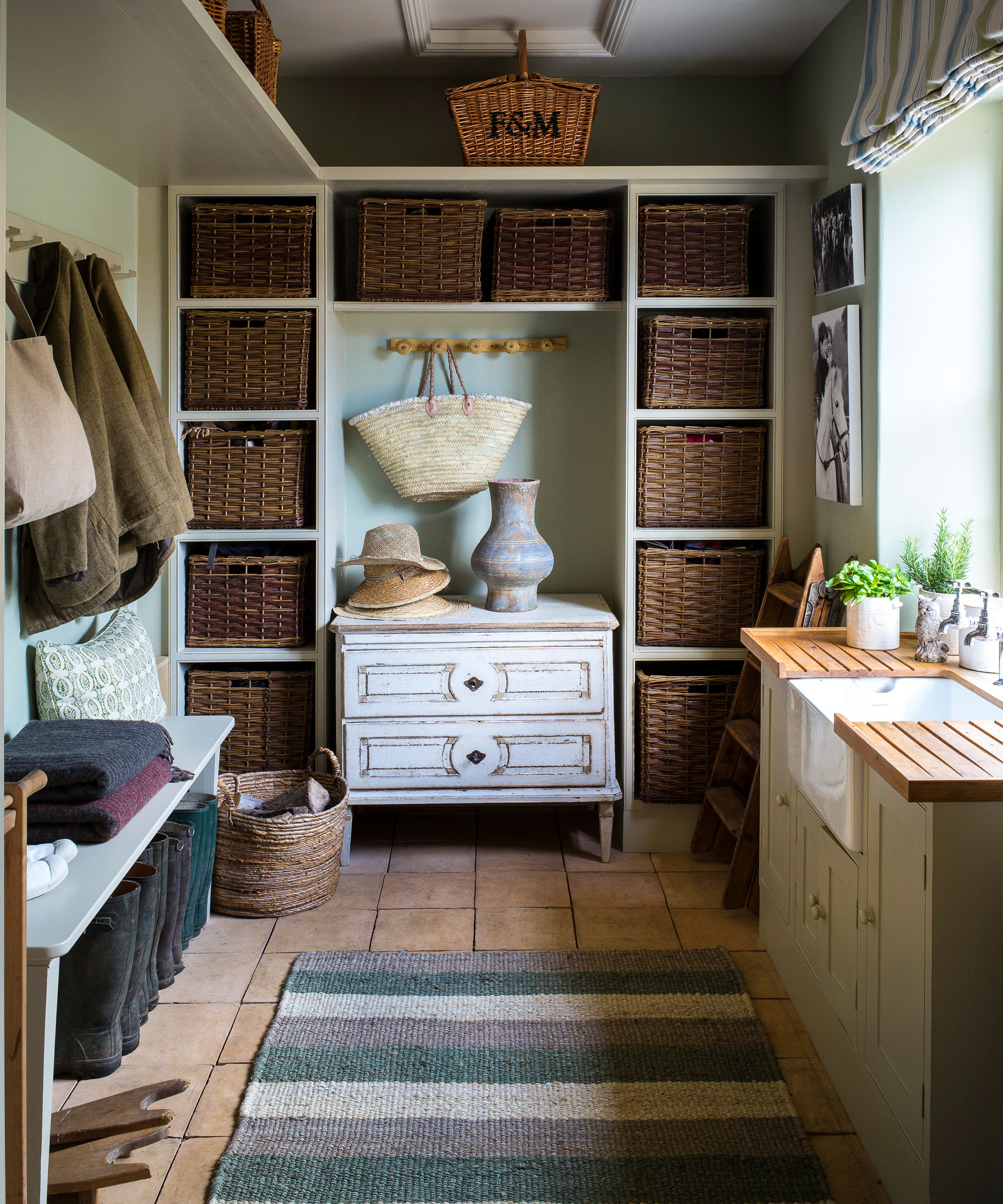
There is a stark difference between a completely organized home and a well-organized home. If you are struggling to maintain your home storage solutions, it could well be that you have overdone it, suggests Cori McDougald, professional organizer and founder of Meat and Potatoes Organizing:
‘It is entirely possible to organize yourself into an inefficient frenzy,’ she begins. ‘A great example of this might be organizing LEGO or crayons/markers in rainbow order. Although this may look aesthetically pleasing initially, these are very hard systems for most people to maintain. LEGO, markers, and other craft items end up staying out (and causing more clutter) because it is too hard to put them away in rainbow order. I can imagine asking a young child to sort all of their doll pieces to "put them away" and that not being very successful.
‘Instead, simplify things by just having a nice bin for dolls where they can be put away quickly and efficiently.’
2. You’re chasing aesthetics
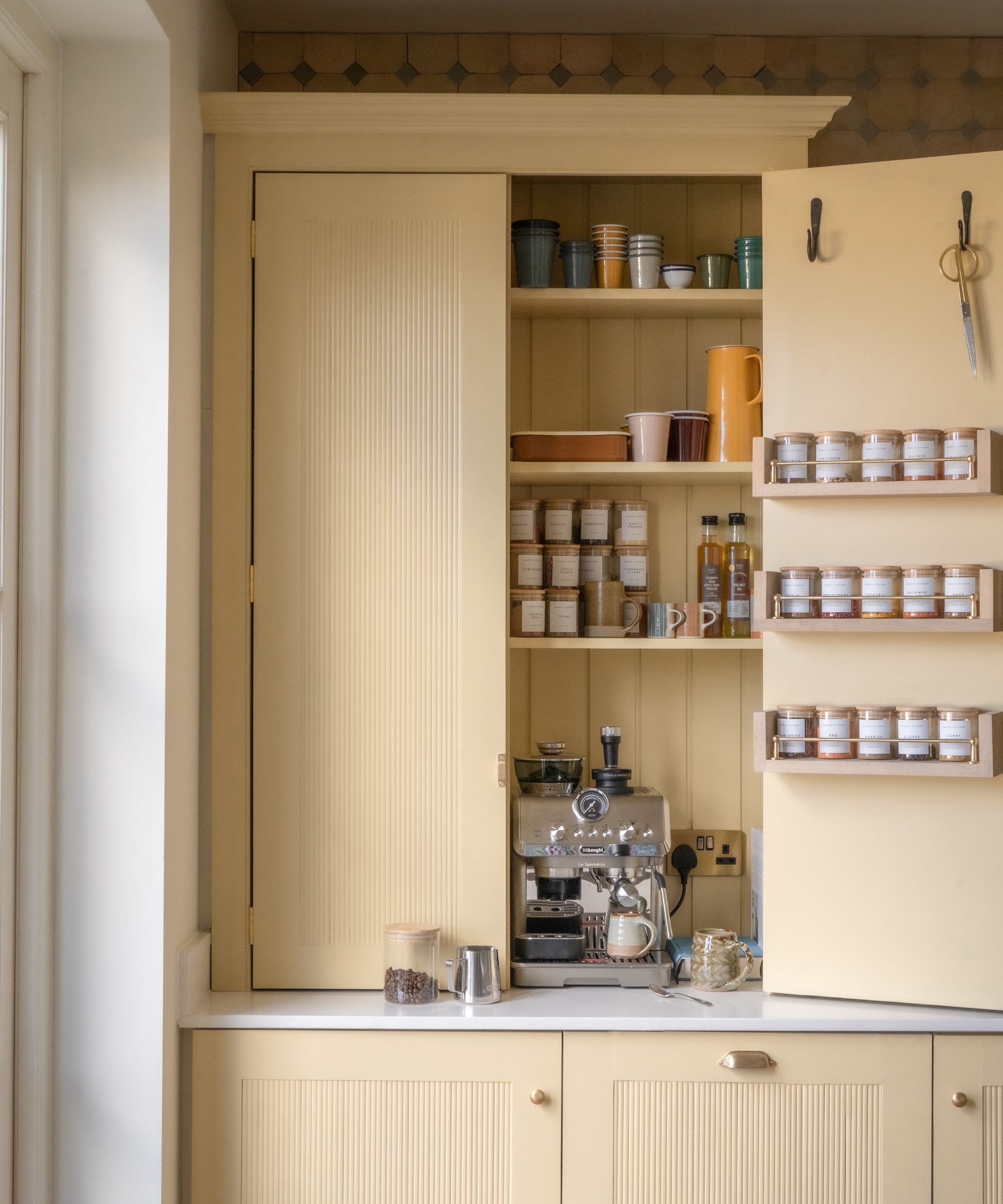
If you can’t maintain a storage area, it could be that it just doesn't work for you and your family. This mainly occurs when you focus on aesthetics rather than practicality, says Star Hansen, clutter whisperer and professional organizer.
‘People often set up systems according to what works for others (or things you’ve seen online) versus doing what works best for you and your brain. Instead of jumping on organizing trends that don’t work, take the time to figure out what works best for you,' says Star.
‘Make a list of everything that works well and doesn’t work well for you when it comes to getting organized. Those two lists will become the structure for successful organizing systems.'
So often, the best systems have already been started; we just need to complete them.
3. You don’t commit to decluttering
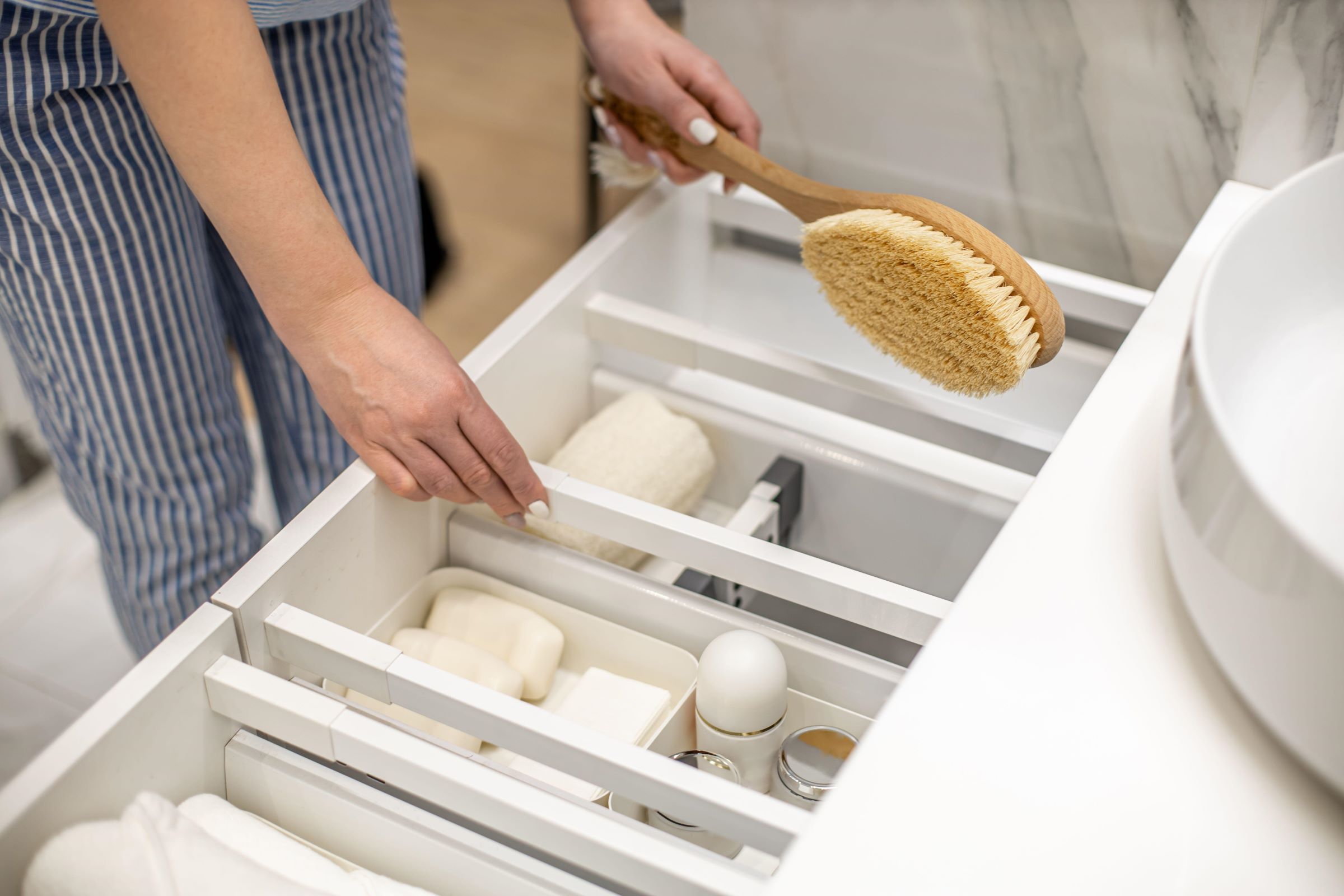
While it is entirely possible to declutter too much if you can’t stay organized it is likely that you are not doing it enough, Kate Pawlowski, professional organizer and founder of Done and Done Home, believes.
‘In our opinion, the biggest reason people have difficulty staying organized is because they view decluttering as a one-and-done event. Decluttering and organizing is an ongoing process that must be done consistently to work.’
4. We are decluttering, but not treating the cause
'On the other hand, if you find yourself constantly decluttering there might be an underlying issue such as a bad shopping habit or an inability to let go of enough items when we do have a clear out,' suggests Star Hansen, clutter whisperer. In these cases, it is important to identify some mindset shifts that help prevent clutter to break the cycle.
‘It might be that we are using physical objects to help us get our needs met. Sometimes, we leave things out as reminders to do things. Other times, we use clutter to set non-verbal boundaries with someone. This happens often when people don’t feel like they can have others over when they have clutter, but they secretly don't want to have people come over in the first place,’ Star explains.
‘Take a moment to look at your clutter and ask yourself if it is helping you somehow. And then brainstorm some ways you can get that need met without the clutter.’
5. Your system uses too much energy
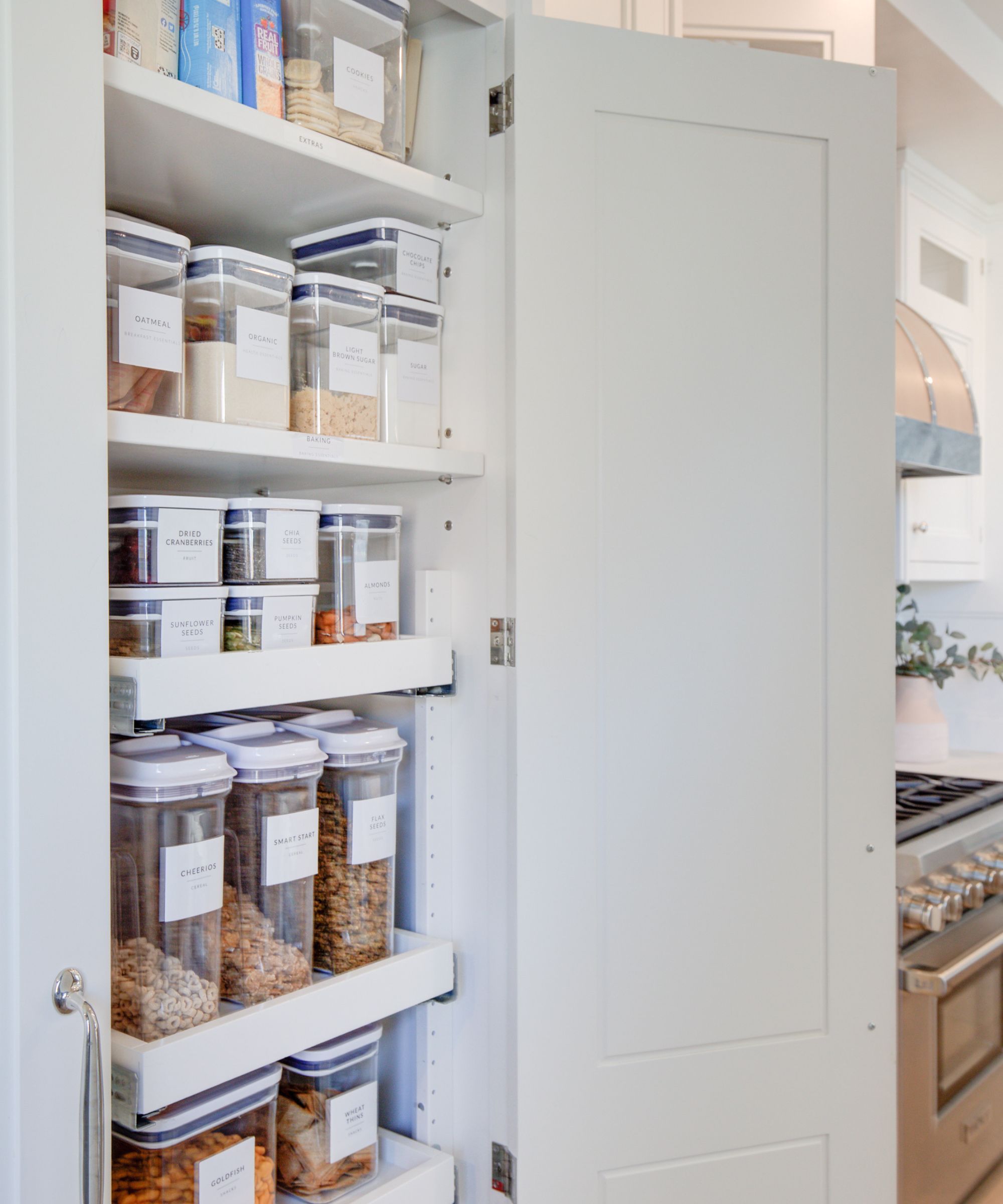
One of the most valuable decluttering lessons I have learned from talking to professionals is that if a system tires you out, you will never maintain it. A sound organizing system should make chores easier, not add to them.
One of the most common spots for this is organizing a kitchen, points out Ashley Murphy, Co-Founder and CEO, and Marissa Hagmeyer, Co-Founder and COO of NEAT Method – ‘Canisters and matching spices are pretty, but we don’t suggest committing to them or anything else you may not be willing to keep up with over time,’ they urge. That being said, sometimes the aesthetics can be enough to motivate people to maintain them, they add.
‘Not everyone has the drive to unbox cereal after every grocery shopping trip, and that’s okay. Be honest with yourself and select a system of organizers you can sustain.’
6. You fall into a shopping trap
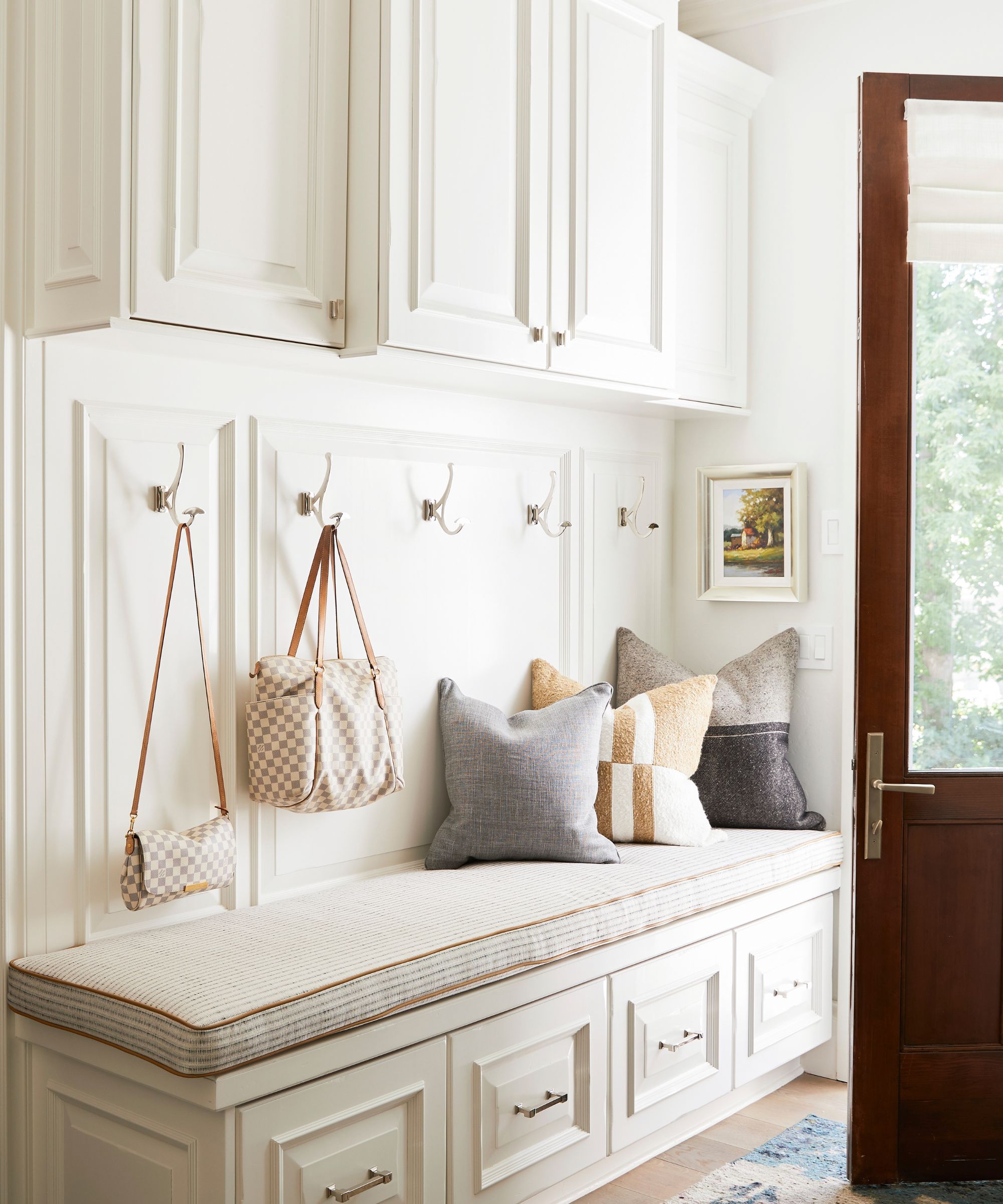
People shop for all sorts of reasons—filling time or looking for a quick hit of dopamine are common reasons for overspending. For professional organizer Kate Pawlowski, this is one of the biggest causes of a chronic clutter problem.
‘For the most part, we all have too much stuff for the space we have. If you don't have a place to put an item, it then becomes clutter and a source of stress. No matter how good your systems are, if you don't stop clutter before it starts coming into your home, you'll struggle to stay organized.’
7. You are neurodivergent
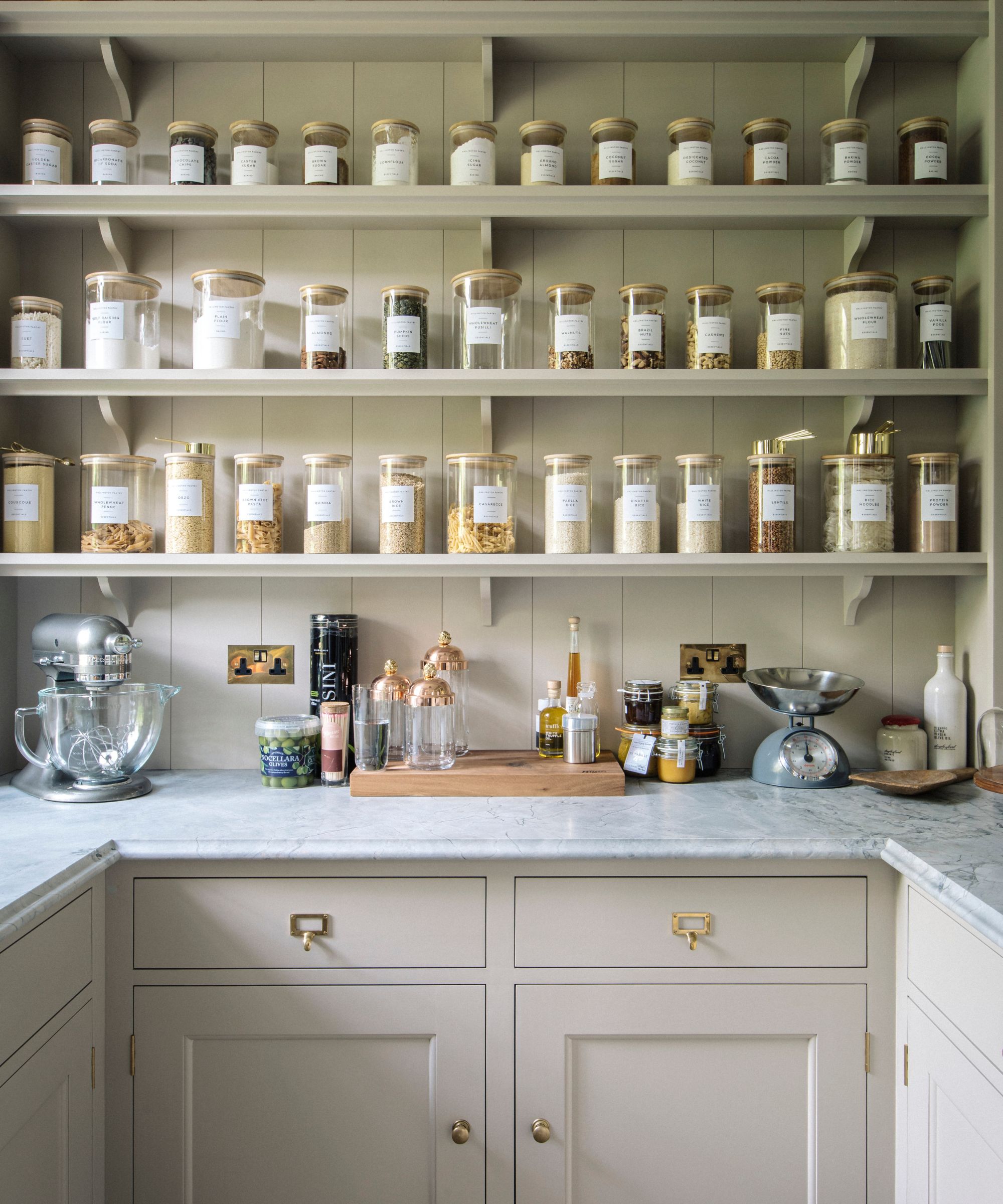
Not everyone's minds work the same way – this is especially true for those of us who have a neurodivergency such as ADHD, a common cause of disorganization.
Cori McDougald, professional organizer, says that for ADHD sufferers, organization needs to be about setting up systems that complement their routines rather than chasing Pinterest perfection or making a house look expensive:
‘In our experience, putting things "behind closed doors" or in bins where you cannot see inside creates an "out of sight, out of mind" experience. When you need the items the most, you cannot find them. It also makes putting things away more challenging for the neurodivergent client, creating piles of clutter instead of the order they were initially seeking.
‘In these cases, we like to go outside the "organizational" box and organize with clear bins, clearly labeled so items can be found, used, put away, and kept tidy. It's often helpful to ask: "Do I prefer things to be in plain sight? Organized and behind closed doors? Or a happy medium somewhere along this spectrum?"
‘If we can tune into our preferences and functional needs, systems have a much better chance of helping us out.’
8. Everything is tucked away
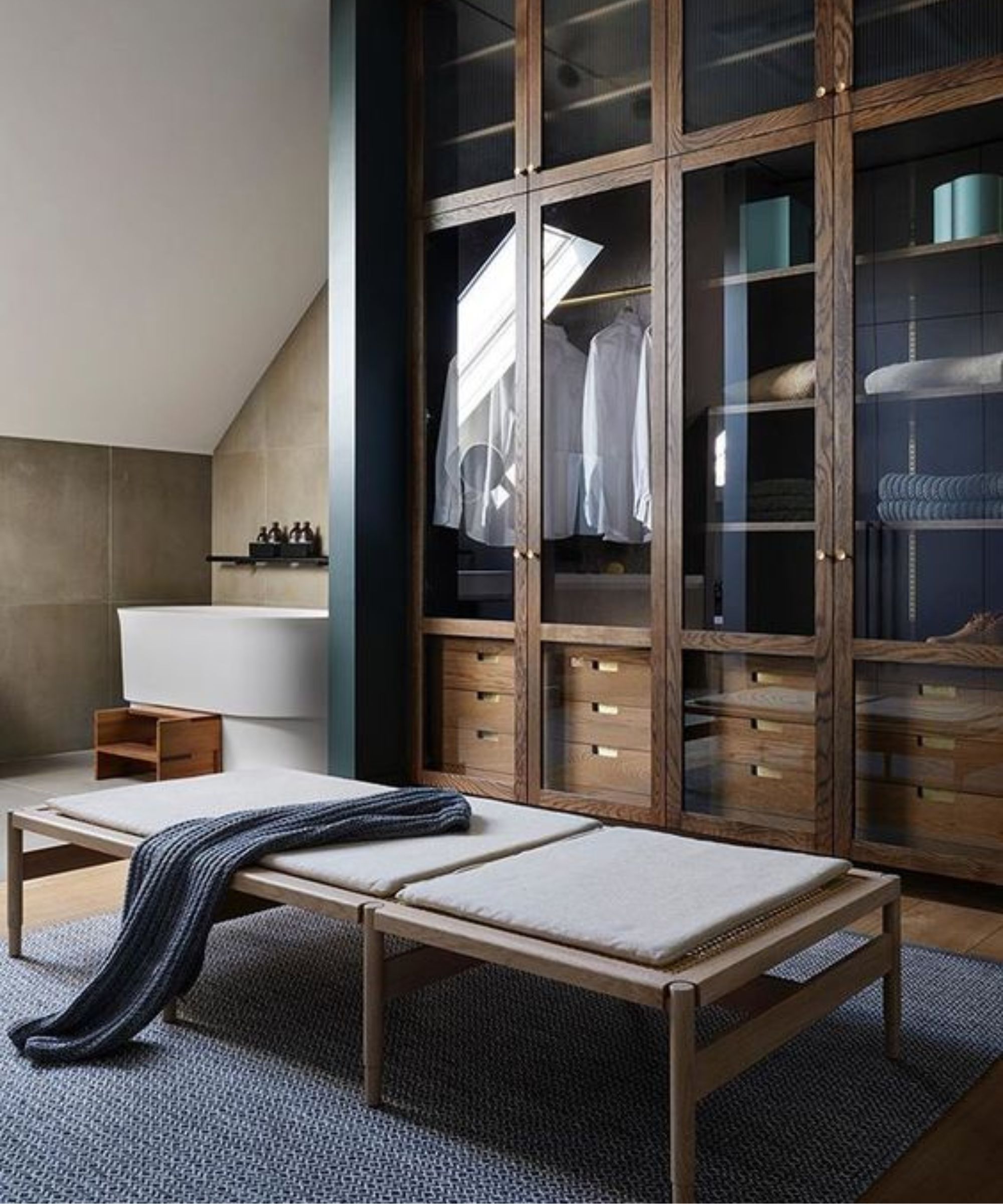
The ‘out of sight, out of mind’ trap isn't just a problem for those of us with ADHD or similar, reminds Ashley Murphy and Marissa Hagmeyer of NEAT Method. Constantly storing items in bags, in boxes, in cabinets is a surefire way to forget we ever owned them in the first place. This leads to excess spending and a build-up of duplicate or similar items that overflow and make organization difficult.
They might not make for the most aesthetic organizing tricks, but ‘allow your belongings to be seen using organizing tools like a riser for canned goods or hooks for your hat collection,’ Ashley and Marissa suggest. ‘This will provide a better visual of what you own and prevent overbuying.’
All-in-One Declutter Planner | View at Etsy
This printable decluttering planner is all you need to help tackle your home's mess without missing a step. It is perfect for both keeping on top of your belongings and starting off on your first big clearout.
FAQs
Are disorganized people lazy?
Disorganization is not always a sign of laziness. Many people try to be organized but have not yet found an approach or system that works best for them and their routines. Working with a professional or even asking friends or family for help can help identify the root cause.
How can I work out why I can’t stay organized?
When trying to work out the root cause of your disorganization, examining your habits, lifestyle, and surroundings can be helpful. It might be that your home is not set up in a way conducive to easy organization, with a lack of storage making it hard to tidy away clutter. You might have a busy schedule that makes carving out time to get on top of a mess difficult or exhausting, or you might have bad habits, such as not putting things away when you are done with them, which can lead to clutter piles around your home.
Working out the cause of your constant disorganization and finding smart methods to improve on them is a great way to fall in love with organizing and commit long-term. With some work and dedication, you might even switch to noticing signs it’s time to stop decluttering, instead.
Sign up to the Homes & Gardens newsletter
Design expertise in your inbox – from inspiring decorating ideas and beautiful celebrity homes to practical gardening advice and shopping round-ups.

Chiana has been at Homes & Gardens for two years and is our resident 'queen' of non-toxic living. She spends most of her time producing content for the Solved section of the website, helping readers get the most out of their homes through clever decluttering, cleaning, and tidying tips. She was named one of Fixr's top home improvement journalists in 2024.
-
 How to arrange flowers like a professional – these 5 rules are all you need according to floral experts
How to arrange flowers like a professional – these 5 rules are all you need according to floral expertsWe asked floral experts for their advice on arranging flowers, whatever the season – create stunning floral displays all year round with these rules
By Katrina Harper-Lewis
-
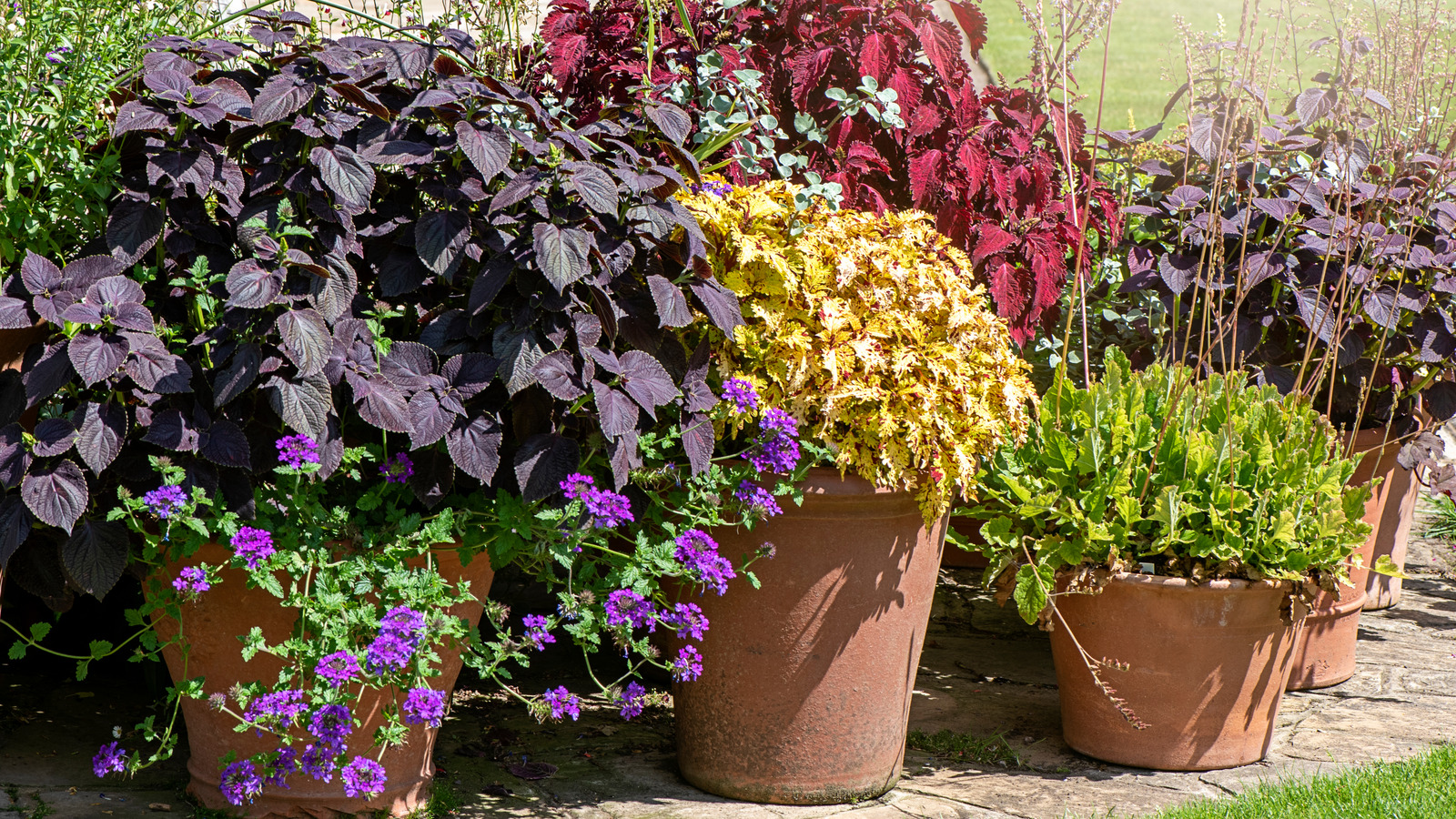 Low maintenance plants for pots for fuss-free flowers and foliage
Low maintenance plants for pots for fuss-free flowers and foliageThere's no need to fuss over these beauties-so you can relax this summer whether you're away or at home
By Jacky Parker
